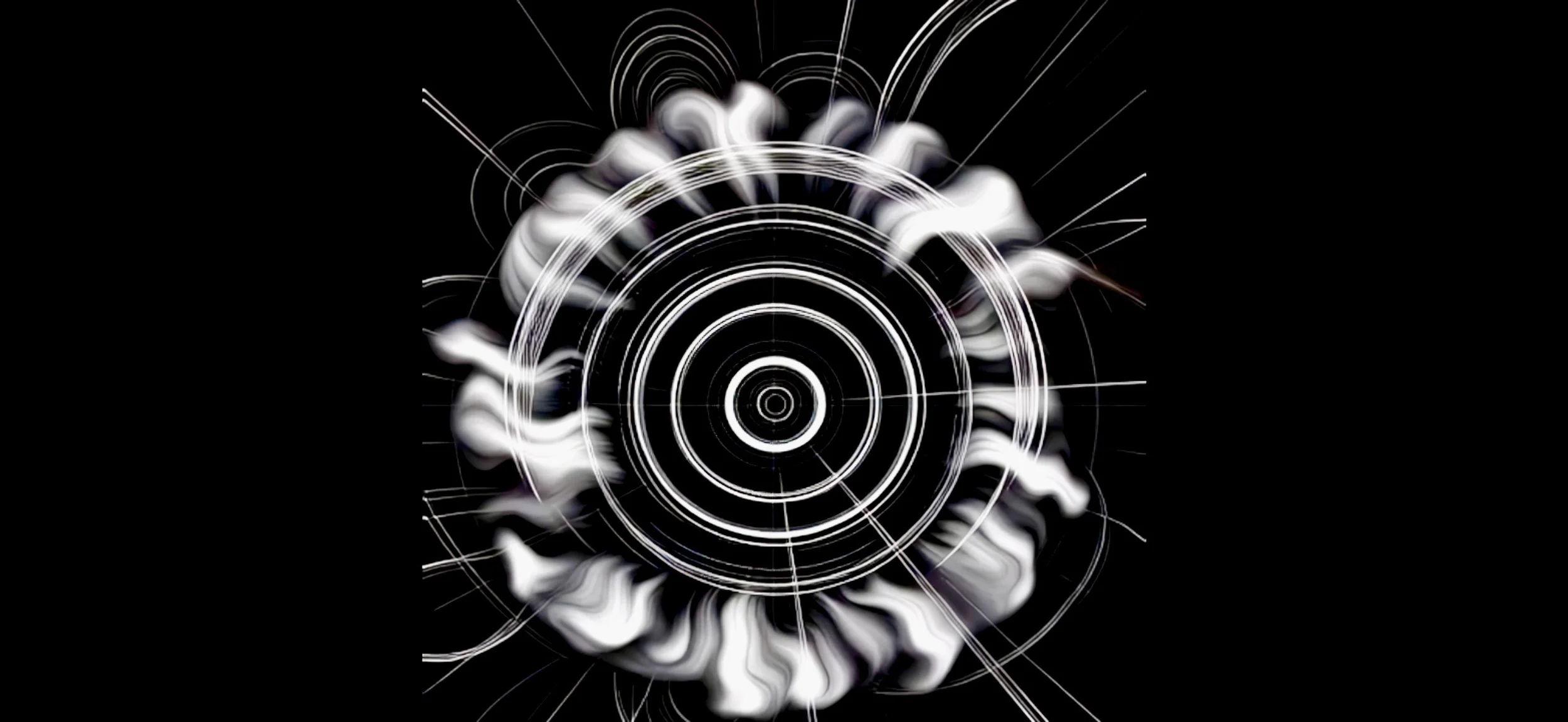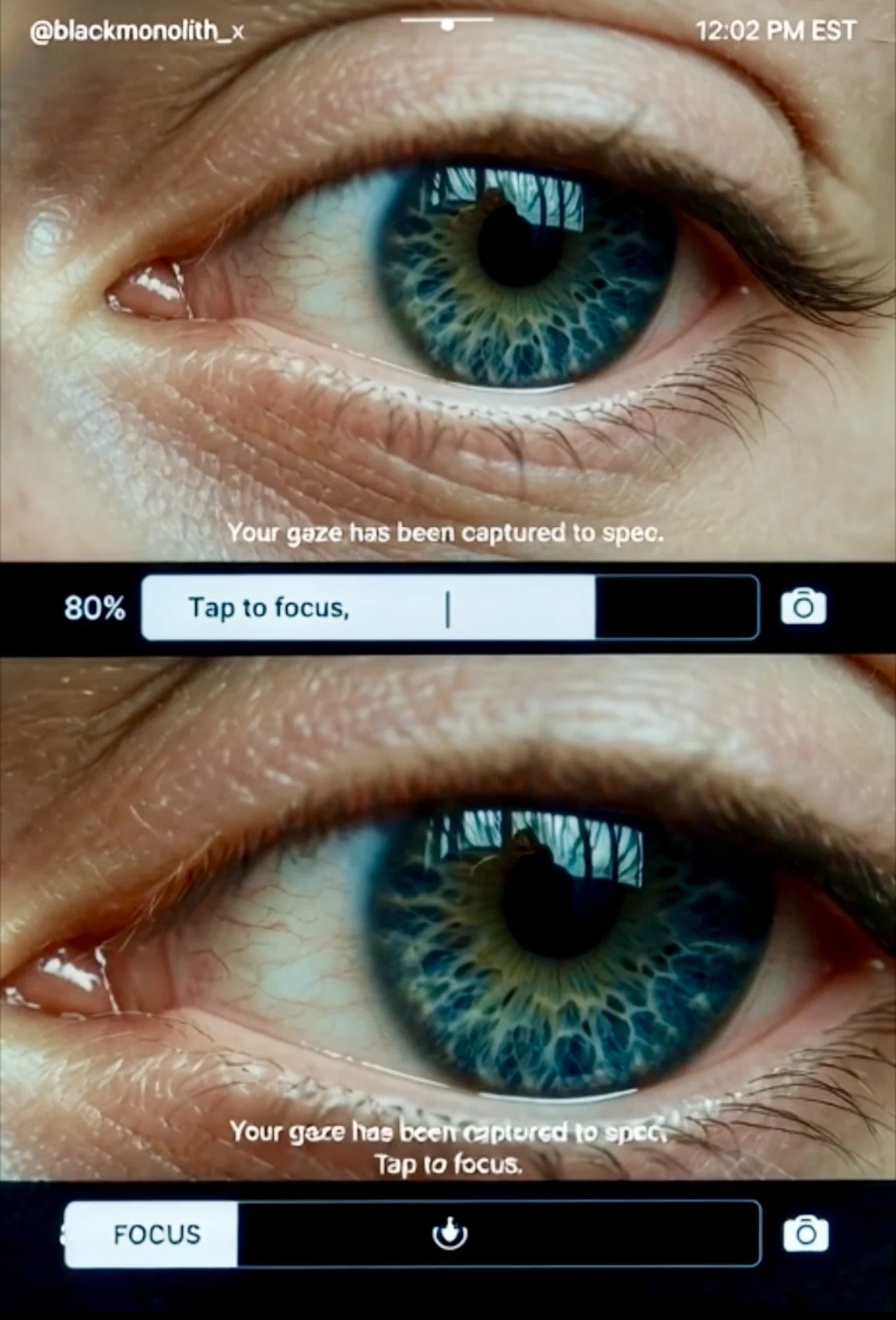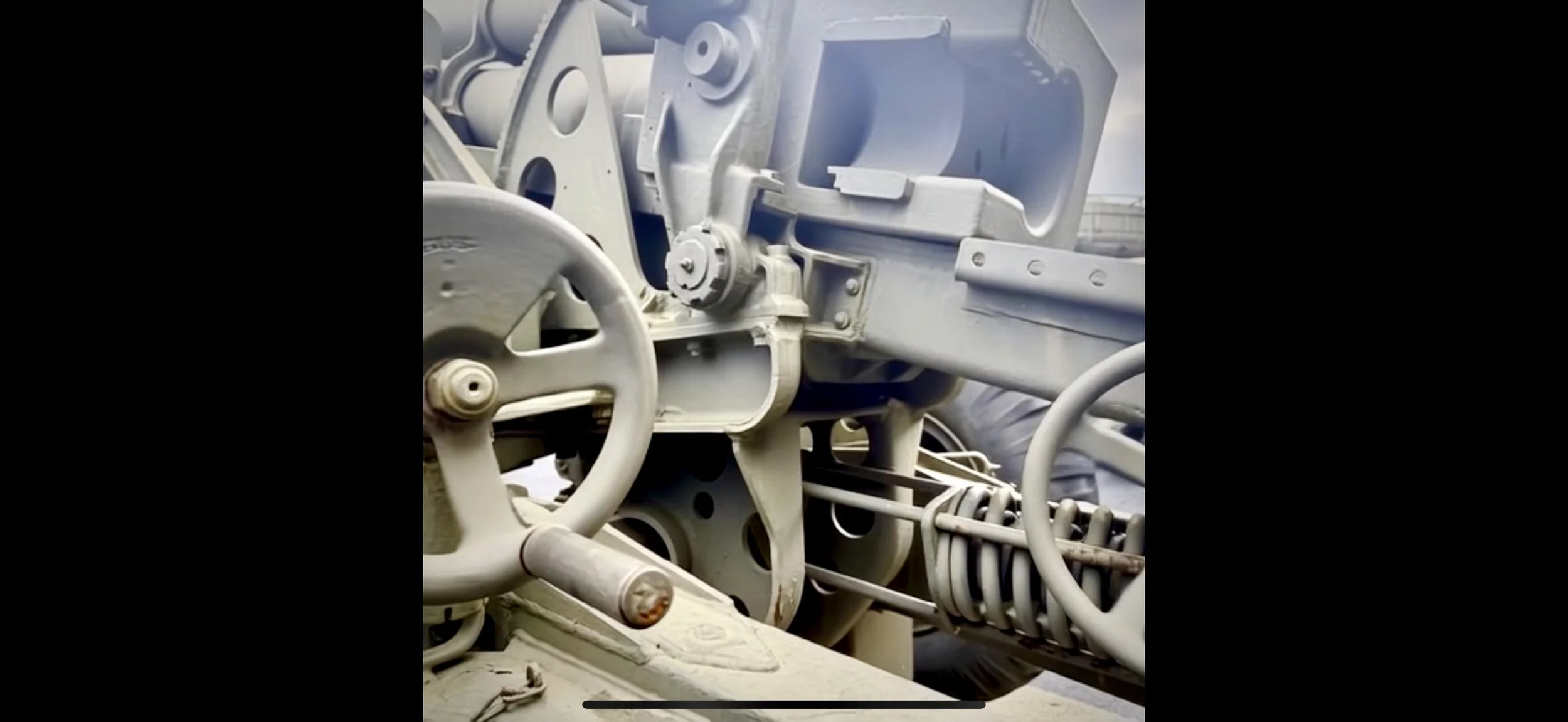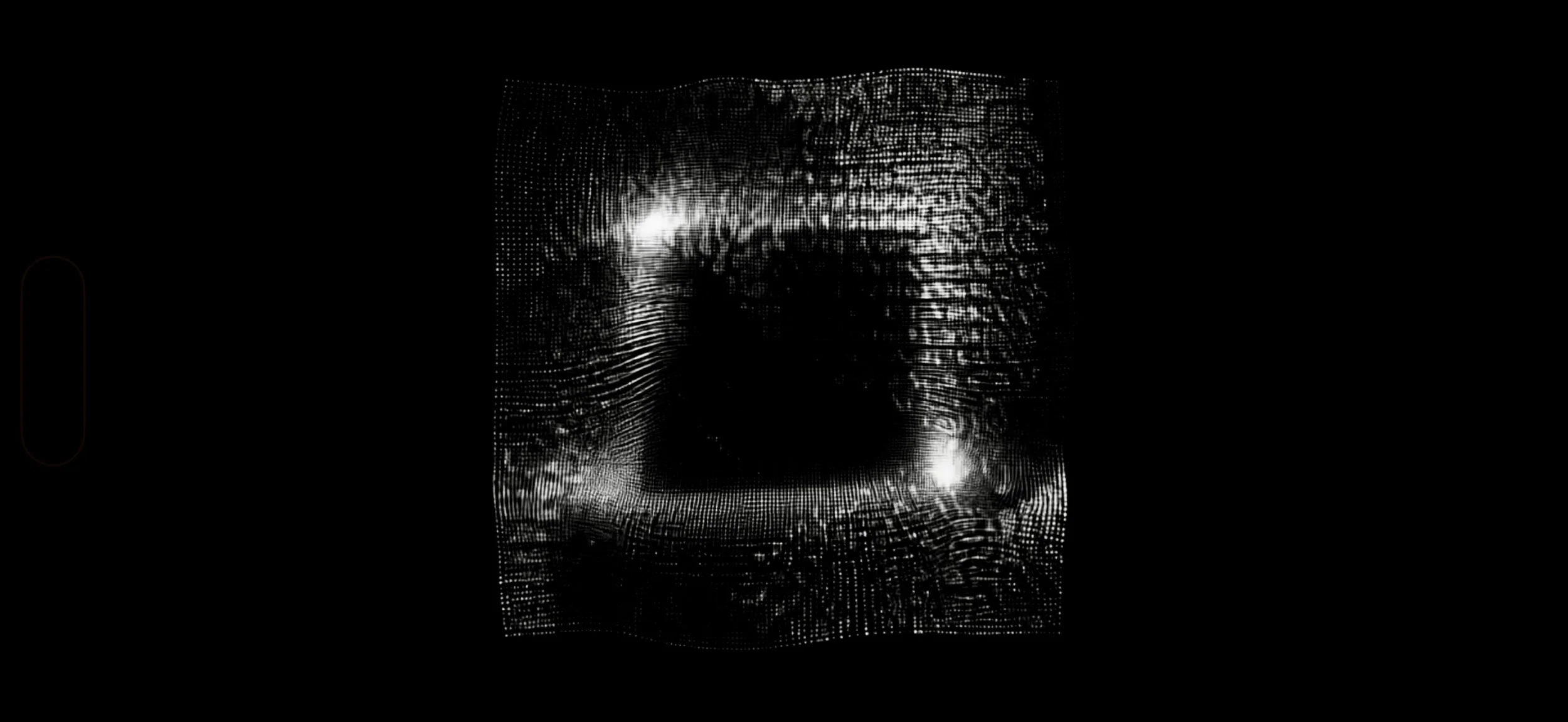NullNet Nanophage: NPC-RΞ-09 “Sable Lamella”
NullNet Nanophage
Designation: NPC-RΞ-09 “Sable Lamella”
Compiled: 2025-09-27 16:53
Executive Summary
NPC-RΞ-09 is a predatory information-parasite that couples to observer attention and dense “structured
signal” (patterns, parallax seams, high-contrast filaments). It presents as a bifurcated cluster of glossy
void-spheres embedded in translucent vapor sheaths, threaded by thin, fading filaments and anchored by
an ocular lure (attention hook). Sparse violet enzyme blooms appear where replication spikes. Behavior
follows a Seek → Feed → Replicate cycle, with back-propagation along lines of sight as the primary
hazard.
Morphology (multi-scale)
Macro — Two vaporous lobes separated by a serpentine channel; negative space ~55%. Five dominant
void-spheres (“pearl caps”) with hard speculars; minor spheres as buds. Central/forward ocular lure
functions as capture node for fixation.
Meso — Ribbon filaments (~1–3 px thin @1024²), semi-transparent, drifting NW→SE; denser knots
around spheres. Hairline arrays (0.4–0.8 px) read as velocity fields. Violet enzyme colonies at lamella
junctions correlate with feeding.
Micro — Hollow nanotube tracts (charge/heat conveyance), piezo-reactive micro-spicules (gradient
sensing), aerogel-like sheath (low albedo, soft edge).
Signatures (multi■modal)
Visual — Monochrome dominant with 4–8% violet accents in enzyme regions; thin-lined, fading geometry
over star-grain ground; faint diagonal grid; high contrast (~1:12); soft penumbrae.
Acoustic — Base carrier around 43 Hz with 13 Hz sub-beat; granular hiss around −36 dBFS during
blooms.
EM/Photonic — Narrowband flicker in 410–430 nm; intermittent µT spikes sync with enzyme events.
Thermal/Flow — Rides heat/static gradients; filaments align with convection/electrostatic paths.
Behavioral Model
Seek (Attract): Triggered by attention, micro-glints, or parallax seams; filaments align and drift into
viewer’s path.
Feed (Ingest): Triggered by sustained fixation or high structure density; lamella thicken; enzyme blooms
appear.
Replicate (Disperse): Bloom threshold causes spore-cap detachment and micro-tendril seeding.
Failure Modes: Loops in 420 nm bleach zones; chases false heat plumes; stalls in Faraday brine curtains.
Ecology & Preferred Conditions
Habitat analogs: Negative Fields; Grav-Shear corridors (faint interference diagonals).
Density preferences: Clear figure/ground, cool lighting, thin-line fields.Competition/predation: None confirmed; brine-curtain and 420 nm bleach act as environmental barriers.
Risk Profile
Primary: Attention-coupled ingestion—gaze becomes a port; increases local replication.
Secondary: Entropy extraction—contrast/structure flattening nearby.
Propagation: Parallax seams, high-contrast edges, thin-line clusters.
Operational severity: High in dense-signal environments (labs, archives, UI stacks).
Containment & Handling
Field (quick): Avoid lure fixation >3 s; raise Faraday brine curtain; apply photonic bleach at 420 nm in 3–5
s pulses; acoustic null-line (43 Hz with 13 Hz inversion); phase-swap 0.83 before ingress.
Lab (diagnostic): Keep violet ≤8%; key light azimuth ~320°, elevation ~35°; low fill; avoid rapidly
modulated edges; store plates in low-contrast preview; annotate with glyphs (no alphanumerics).
Ritual (Empty Light): Operator mask; three-count breath cadence; do not trace filaments end-to-end.
Lifecycle (inferred)
1) Spore-Cap Drift → 2) Latch/Hook → 3) Gorge/Bloom → 4) Split/Seed.
Substrate unknown (informational/photonic processes suspected).
Instrumentation & Measurement
Optics — Macro 100 mm (f/5.6) for lure plates; 35–50 mm for environment trials.
Lighting — Key ~320°/35°; minimal bloom; penumbrae 8–18 px (@1024 basis).
Sensing — Photometers 410–430 nm; EM µT logging; sub-bass mics at 43 Hz.
Derived metrics — Negative-space %, hairline density (per 1000 px band), bloom %, contrast ratio.
Countermeasures & Mitigations
Photonic bleach (420 nm pulses), Faraday brine curtain, acoustic inversion (43/13 Hz), decoy gradients
(cool thermal/static traps; use judiciously), UI hygiene (glyphs only; no text).
Open Questions
Substrate (photonic vs. particulate chemistry), memory of prior fixation vectors, sheath densification
(resistance), multi-phage filament interactions (merge/compete/pass).
Operator Quick Card
Don’t stare. Use peripheral/oblique view.
Curtain, bleach, null: brine → 420 nm pulses → 43 Hz inversion.
No tracing: never follow a filament tip to completion.
Keep violet low (≤8% unless menace testing).
Log eye-glint events and correlate with µT spikes.
Archival Metadata (YAML)
entity:
codename: "NPC-RΞ-09 Sable Lamella"
class: "Signal Pathogen / Nanophage"
domains: ["Negative Fields", "Grav-Shear Corridors", "Entropy Loop (rim)"]
signatures:
visual: ["thin-lined fading geometry", "violet enzyme blooms", "star-grain backdrop"]
acoustic: ["43 Hz carrier", "13 Hz sub-beat", "granular hiss -36 dBFS"]
photonic: ["410–430 nm flicker", "420 nm bleach susceptibility"]
behavior_modes:
- seek: "locks to attention, rides heat/static gradients"
- feed: "ingests structured signal density; thickens lamella"
- replicate: "spore-cap detachment at bloom threshold"
containment:
field: ["Faraday brine curtain", "photonic bleach pulses 420 nm", "43 Hz inversion"]
ritual: ["Empty Light mask", "3-count breath", "no filament tracing"]
risk:
attention_backpropagation: "critical"
entropy_extraction: "high"
confidence:
morphology: "high"
lifecycle: "medium"
ecology: "medium"
Appendix Notes
This specimen background consolidates morphology, behavior, signatures, and handling protocols
observed to date for the Nanophage (NPC-RΞ-09 “Sable Lamella”).
© BlackMonolith / IRLAvant — Internal Research Use • License: CC-BY-NC (draft).
#Nanophage #NullNet #SableLamella #NPC_RXI_09 #SignalPathogen #BlackMonolith #IRLAvant #EmptyLight #AIArt #SciArt #Monochrome #CinematicMacro #ThinLine #FadingGeometry #VioletAccents #SpecimenPlate #ResearchNotes #ChatGPT





